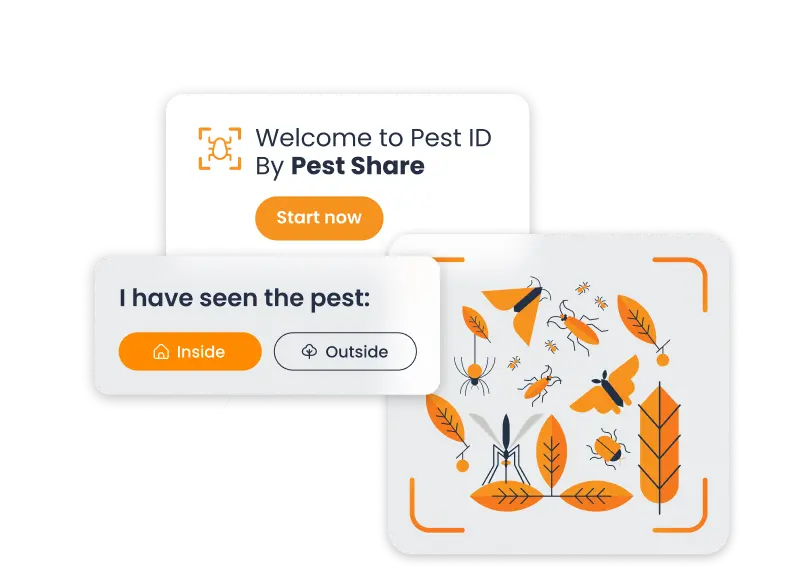Landlords and property managers are often legally required to keep rental premises free of pests. And also understanding your role in pest management makes your work effortless and effective.
But what happens when professional pest control is needed, and how do you inform the tenants?
Local and State Regulations
Different places have different rules. You’ll need to check local and state regulations to find out how much notice must be given. Remember, these laws are there to protect both landlords and tenants, ensuring a fair process.
Including Pest Control Clauses in Lease Agreements
It’s a wise idea to include clauses related to pest control in the lease agreement. It can detail how and when you might enter a tenant’s unit for pest control purposes. This agreement can save headaches down the road.
Crafting the Notice: Clear, Courteous, and Compliant
Getting the notice right is crucial. It’s not just a piece of paper; it’s a communication tool that can set the tone for your relationship with your tenant.
Writing it Right
The notice should include the date, time, and reason for entry. It should also provide information about the pest control treatment to be used and any preparations the tenant needs to make.

Fast, Tech-Driven Pest Solutions.
Providing Adequate Notice
Usually, 24 to 48 hours is considered reasonable notice, but this can vary. Always consult your local regulations and pest control laws to ensure you’re within the law.
Documentation
Keeping a record of all communications, including notices, can be vital if any disputes arise later. It’s not just good practice; it’s smart management.
The Human Touch: Going Beyond the Legal Requirements
Yes, you have legal obligations, but that doesn’t mean you can’t add a human touch. Being professional doesn’t have to mean being impersonal.
Personalized Communication
If possible, speak to the tenant in person or over the phone before sending the notice. This courtesy can build trust and cooperation.
A quick follow-up after the pest control service to check if everything went smoothly can go a long way. It shows that you care not just about the property but also about the tenant’s comfort and satisfaction.
Technology and Automation: Streamlining the Process
In an increasingly digital world, technology can make the process more efficient without losing the personal touch.
Using Property Management Software
Many property management software options allow for automated but customizable notices. These tools can save time while ensuring compliance and consistency.
Offering Digital Communication Channels
Providing an online portal or app where tenants can access notices, ask questions, or voice concerns can enhance communication and satisfaction.
Want to streamline pest control notices to tenants? Pest Share is software for pest management that allows your occupants to submit their pet issues through the platform. This offers them quick and easy access to a service by directly requesting pest control without involving the property manager.

Sample pest control notice to tenants:
[Your Property Management Company Name]
[Address]
[City, State, ZIP]
[Phone Number]
[Date]
[Tenant’s Full Name]
[Apartment Number & Address]
[City, State, ZIP]
Subject: Scheduled Pest Control Service
Dear [Tenant’s First Name],
We hope this notice finds you well. In our continued efforts to maintain a comfortable and pest-free living environment, we have scheduled a professional pest control service for your apartment.
Service Details:
Date of Service: [Date]
Time of Service: [Time Window, e.g., between 10:00 AM and 2:00 PM]
Pest Control Company: [Company Name]
Nature of Treatment: [Brief description of the treatment, e.g., inspection and treatment for common household pests]
Preparation Required: [Instructions if any, e.g., please remove pets from the apartment during the service]
Please be assured that the treatment will be performed by licensed professionals using approved methods and substances. Your health and safety are our top priority.
If you have any questions, special requests, or if you need to reschedule the service, please contact our office at [Phone Number] or reply to this email no later than [48 hours before the service date].
We appreciate your cooperation in this matter and thank you for your understanding.
Wishing you a pleasant day.
Sincerely,
[Your Full Name]
[Your Title, e.g., Property Manager]
[Your Property Management Company Name]
Note: The sample notice above is provided as a general guideline and should be customized to meet the specific legal requirements and circumstances of your jurisdiction and property. Consultation with a legal professional or reference to local regulations is advised to ensure complete compliance with all applicable laws.
Apartment pest control notice:
Apartment pest control notices are an essential communication tool between property managers and tenants, detailing the scheduled pest control activities within a rental unit or shared spaces. These notices provide the date, time, nature of treatment, and any required preparation on the tenant’s part. The objective is to maintain transparency, comply with legal requirements, and foster a sense of trust and collaboration. A well-crafted pest control notice not only fulfills legal obligations but also reflects a property manager’s commitment to tenant well-being and satisfaction. It underscores a proactive approach to ensuring a safe, comfortable living environment free from pest-related nuisances. By giving tenants adequate notice and clear instructions, property managers can facilitate a smooth process, minimizing disruptions and fostering goodwill.
It’s Not Just a Notice; It’s a Relationship
Providing pest control notice to tenants isn’t just about legal compliance; it’s about communication, respect, and relationship-building. A well-crafted notice, delivered with consideration and followed up with genuine care, can turn a potentially stressful situation into an opportunity to strengthen trust and satisfaction.
In the world of property management, small details like these can make a big difference. By approaching pest control notice with diligence, empathy, and a touch of innovation, you can create a better experience for your tenants and a more successful business for yourself.





